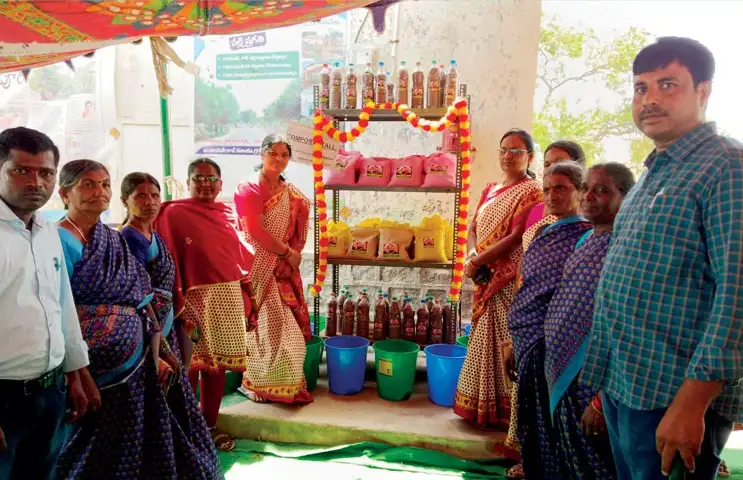

Telangana's Thimmapur village separates the waste generated and earns money by making organic fertiliser from the wet waste
Much is being done at the grassroot levels in India when it comes to waste and its scientific management. Taking a lead in this, is Thimmapur gram panchayat in Telangana’s Karimnagar district which has not only established a sound waste management system but also used it to generate revenue.
Apart from making the place clean and hygienic, the system has earned the village the tag of open defecation free Plus GP.
The village has a population of 3,689 people who live in 1,235 households and for the entire area they constructed a dump year for disposal of the waste. Understanding the value of waste segregation, the GP distributed two bins for each and every household so that the waste is segregated at the source into biodegradable (wet) and non- biodegradable (dry) waste.
To collect the waste from each house, the GP charted out a route on which a tractor trolley plies for collection. The trolley has separate segments for different kinds of waste, ensuring that wet and dry waste is not mixed up.
To make things easier, the dry waste is further separated into plastic, paper, glass, iron, hazardous and other items separately and arranged in the allocated chambers before being taken to the segregation shed.
The wet waste is kept for a period of 45 to 60 days to convert it into vermicompost or organic fertiliser. Vermicomposting is the scientific method of making compost, by using earthworms. These worms are commonly found living in soil, feeding on biomass and excreting it in a digested form. Till now, 7,804 kilograms of vermicompost has been prepared of which 4,314 kg of vermicompost was used for the nursery which is maintained by the GP while a part of it was also utilised for plantations created under Haritha Haram, the Government programme for increasing green cover in the village.
The leftover 3,490 kg of compost was sold under the brand name Thimmapur Vermi Compost, earning an income of Rs.34,898. That is not all, the GP also earned Rs.19,850 by selling all types of dry waste sold.
For easy accessibility of this organic fertiliser, it is sold in a stall which has been set up in the GP office premises.
Besides making people aware about plastic pollution, the GP has a facility by which steel utensils and objects are provided as an alternative to plastics while the use of single plastic is banned in the area.
The GP has made the residents aware of sanitation and now every household has toilets. Some have constructed individual soak pits to conserve groundwater while others are using the greywater for kitchen gardens.
New Zealand's Deputy Prime Minister and Foreign Minister Winston Peters has arrived Kathmandu on his…
The Indian Army and the Mongolian Armed Forces will commence the 17th edition of their…
Pandi Ram Mandavi, a renowned artist from Bastar, Chhattisgarh, was conferred the Padma Shri award…
Taiwan's Mainland Affairs Council (MAC) criticised China on Wednesday for organising two summits for Taiwanese…
The East Turkistan Government in Exile (ETGE) vehemently denounces Mr. Francesco Frangialli, the Honorary Secretary-General…
Chairman John Moolenaar and Ranking Member Raja Krishnamoorthi of the House Select Committee on the…